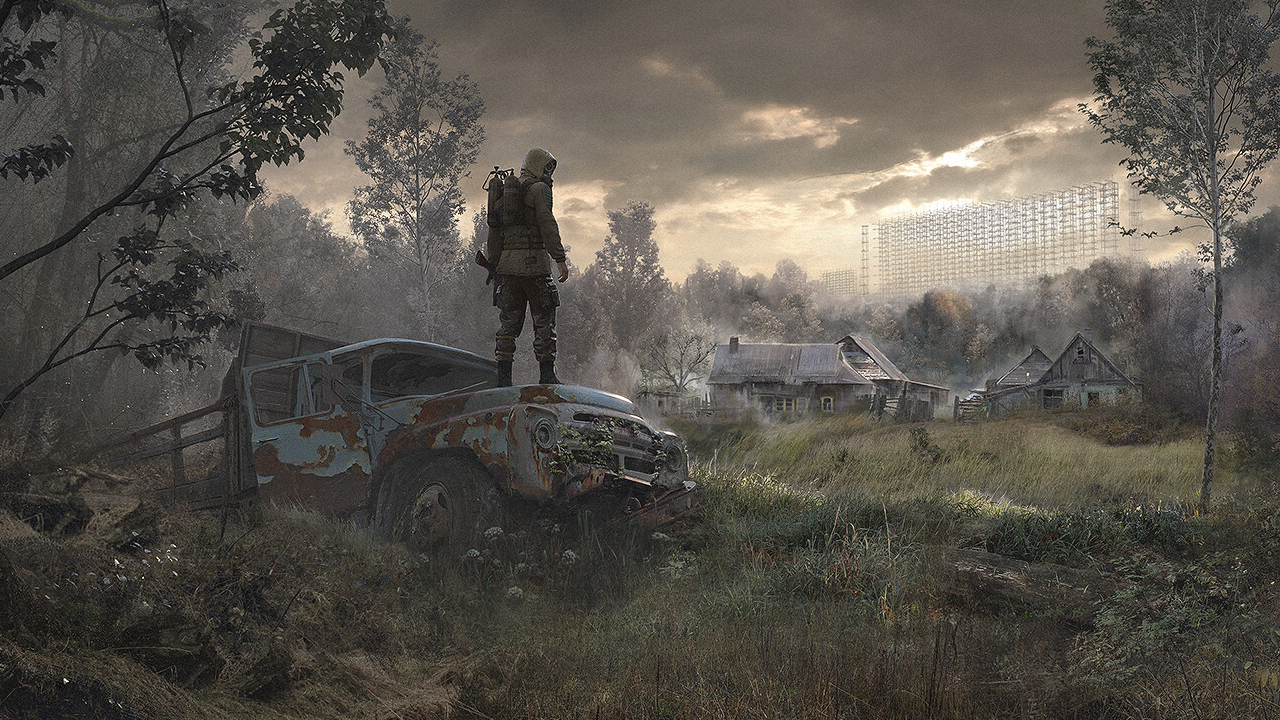Stalker 2 developers continue work as key team members fight for Ukraine
GSC Game World gives some insight into what its staff are going through.
Development on Stalker 2: Heart of Chornobyl was recently delayed until 2023. Its developer GSC Game World was based in Kyiv but, since Russia's invasion of Ukraine, has been facing the direst of circumstances. It had to temporarily pause development while it helped some employees flee the conflict, and evacuate its old office, while other employees are volunteering or have signed up for the Ukrainian armed forces.
The extended Xbox and Bethesda showcase included a video about what’s been happening with GSC Game World’s staff. It begins with some clips of the studio in happier times before cutting to footage of Kyiv from February 24. We're shown some of the bombed-out buildings around GSC's offices and the evacuation of some of the studio's employees. There's a melancholy shot of the near-bare Kyiv office afterwards, a place where these people once dreamed up their ideas and were making them reality: now just rows of empty chairs, desks strewn with abandoned monitors and chintz no-one wanted.
We see a black cat. "The work day begins with a siren," says Anton Kukhtytski. "During the bombing, we run to the bomb shelter. This is my cat's carrier bag. My cat died in the shelling in the first week of the war."
Not all employees left or could leave Kyiv. We see a community manager, Maxim Tkachenko, whose office is now a bathroom. Daria Tsepkova, a narrative designer on the game, says: "For 3 months, I live and work in this corridor. A one-eyed dog rescued from Hostomel lives with me. It's not easy to write violent quests when there's a war outside your window."

GSC goes on to show how some of its employees are volunteering in the war effort, juggling their 'day job' with the reality of what's going on.
"I am from Mariupol," says animator Alexandr Levchenko. Mariupol is one of the worst-hit regions in the war. "Since the start of the war I've had no contact with my parents. It is an indescribable feeling, not knowing whether your loved ones are alive.”
Many GSC staff have signed up for the Ukrainean army. Dmitriy Iassenev, lead AI developer of the game, talks to the camera while holding a mounted gun. "I never imagined a war in Europe in the 21st century," says Iassenev.
Keep up to date with the most important stories and the best deals, as picked by the PC Gamer team.
"My name is Max," says Maksym Hnatkov, dressed in military fatigues and holding a rifle. "I'm a narrative designer on Stalker 2. After our victory we'll return to the game."
"We'll see you at release," adds Iassenev. "Slava Ukraini!"
This phrase means 'Glory to Ukraine!' It is a symbol of Ukrainian sovereignty, resistance and the official salute of the country's armed forces.
A text note afterwards says: "This is just a small fraction of our story. Many of our colleagues are currently unable to publicly share their experiences due to safety concerns."
GSC Game World is currently in the process of relocating to Prague. The studio has previously condemned the "inhuman cruelty" of Russia's invasion of Ukraine.

Rich is a games journalist with 15 years' experience, beginning his career on Edge magazine before working for a wide range of outlets, including Ars Technica, Eurogamer, GamesRadar+, Gamespot, the Guardian, IGN, the New Statesman, Polygon, and Vice. He was the editor of Kotaku UK, the UK arm of Kotaku, for three years before joining PC Gamer. He is the author of a Brief History of Video Games, a full history of the medium, which the Midwest Book Review described as "[a] must-read for serious minded game historians and curious video game connoisseurs alike."

